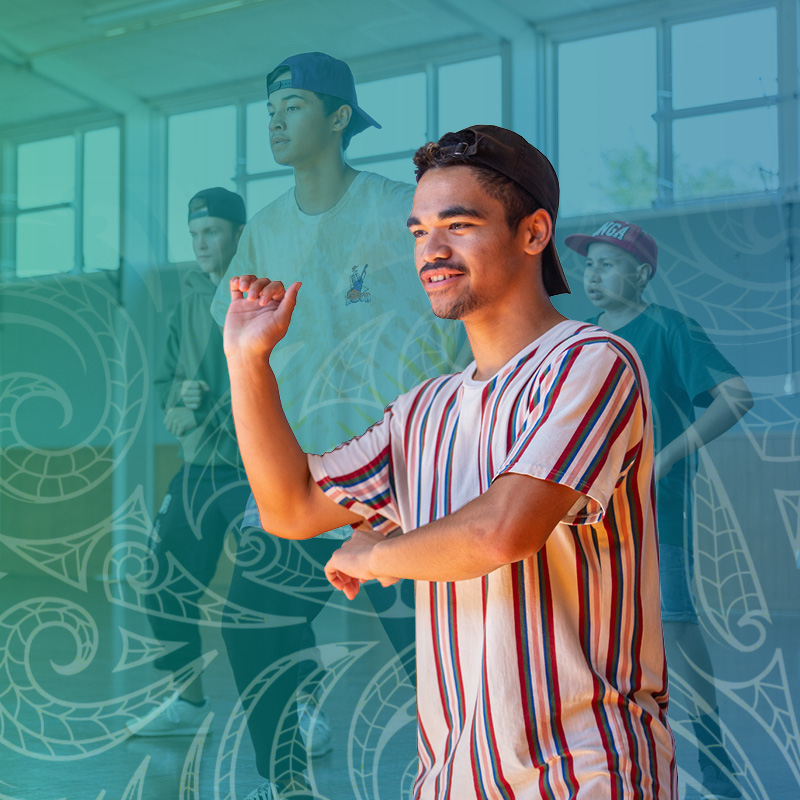
From a te ao Māori perspective, tūrangawaewae connects young people to whenua (land) and whakapapa (genealogy). This place of standing embraces geographical, genealogical and cultural roots. It connects young people’s sense of self to a much deeper, holistic and interconnected place of belonging.

There is ample research on the positive effects on well-being from connecting with nature and outdoor environments, and how connecting with your history, whakapapa, and iwi in these natural environments helps to form your identity. Our schools have found making these connections has been very positive for their students.
Huntly College regularly engage with the Waikato River as students cycle the Te Awa trails or paddle waka ama and hear the history and stories of their awa. Raglan Area School students have regenerated camp sites in the Raglan Harbour to use on camps and have connected with local Iwi and Trusts to help deliver their outdoor programs. Melville High School bring to their camps at Kawhia and Raglan a local kaumatua to share stories and the whakapapa of that area. Tarawera High School have enjoyed paddling on waka ama and waka tangata on their camps and learning the about the direct connections they have to the great Polynesian navigators that discovered this land. Ngaruawhia High School have had great success linking their Waka Roopu (Form classes) to Waka Hourua (traditional sailing waka). They have empowered their senior students as navigators of younger students in these classes to mentor and awhi in outdoor experiences, and to transfer cultural knowledge in the form of school waiata, haka, karakia, and tikanga during school camps and events.
All of our schools are using a place-based curriculum to connect students to their local maunga, awa, and moana, by enjoying outdoor activities including waka, sea kayaking, surfing, swimming, tramping, and biking as they learn about and connect to these local taonga.
Interviews with students from our schools have also revealed the importance of connections with each other. We continue to be surprised that on the first day of camps it is not uncommon for students not to know the names of all their classmates, even when the camp is in December. A strong theme coming through is that camps are vital for students to connect with other students beyond their immediate circle of friends. School for them is a happier and friendlier place when they get to know everyone better. They find these connections so much more meaningful when they get to experience challenges together, cook and share food, and spend quality time together, which for them only happens on their outdoor camps.
